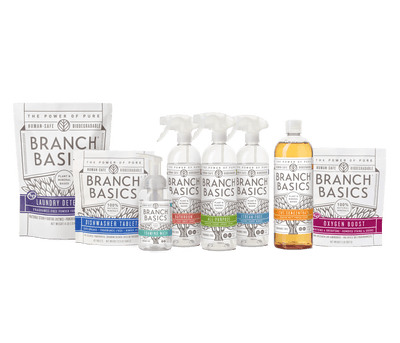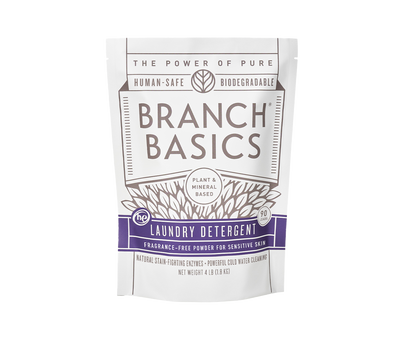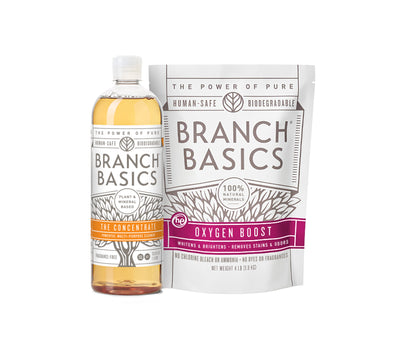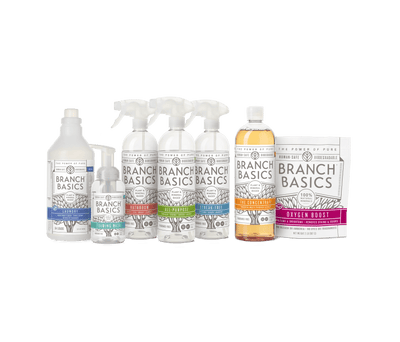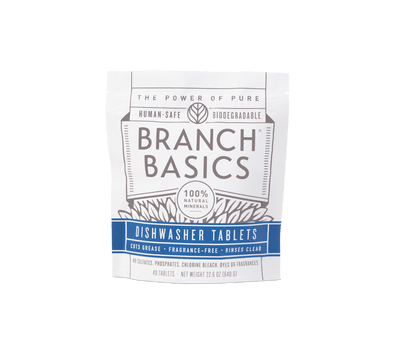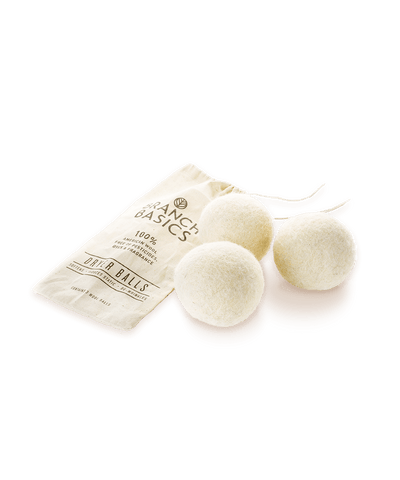Why Human-Safe Dishwashing Is So Important

Did you know that dishwasher detergents are a leading cause of childhood poisoning in the United States?
Given that risk, it’s a wonder so many of us keep our dishwashing detergents under the sink. Yet, when you see the ads and beautifully packaged detergents in the stores, you’d think everything is safe. The bottom line - it is essential that dishwashing products (even if natural and safe) are not accessible to children!
The Hidden Dangers of Dishwasher Detergent
Ingesting synthetic soaps is never a good thing. However, ingestion of dishwashing detergents, specifically automatic dishwashing detergents (the kind that go in your dishwasher) is especially harmful because of the concentrated nature of the caustic chemicals.
-
Per Poison Control: “The same ingredients that make ADDs so effective against fats, proteins, and other types of food grime also make them dangerous if they are swallowed, inhaled, or come into contact with eyes or skin. These special qualities of ADDs make them strong irritants capable of causing chemical burns. Whether someone swallows some ADD, gets it on their skin or eyes, or inhales it, the resulting effects depend on three important factors: the product itself, the amount, and the duration of exposure."
2 Yet, most of us have never been warned about the dangers of using these products or keeping them within reach of children.
Chemicals Of Concern In Common Dishwasher Detergents
Firstly, the alkaline chemicals used in dishwasher detergents are corrosive in nature, which makes them caustic to skin, tissue, and internal organs. Liquid detergents are the worst, and can have an alkalinity as high as 13, making them extremely dangerous. The more “concentrated” the detergent, the more toxic it’s likely to be.
In addition, many conventional and even “naturally derived” dishwashing detergents may contain other harmful chemicals that release toxic VOCs into your home's air during the cleaning cycle and may even leave residues on your dishes.
Fragrances
Fragrance chemicals emit VOCs that are asthmagens (cause asthma), neurotoxins (impact our ability to think, process emotions, and move), obesogens (make us gain weight regardless of what we eat or how much we exercise), carcinogenic (cause cancer), and endocrine disruptors (impact our hormones). They are designed to “cling to” surfaces and therefore may leave residues on your cleaned dishes.
Phthalates
Phthalates that are endocrine-disruptors and can cause DNA damage and lower IQ.
Emissions
Emissions from harmful chemicals that contain VOCs and SVOCs increase when heated and are associated with “sick building syndrome”.
Formaldehyde
Formaldehyde-releasing agents that act as preservatives such as DMDM hydantoin, etc., are carcinogenic.
Surfactants
Surfactants like Nonylphenol Ethoxylates (NPEs) which have been banned in other countries (but not the United States) due to disrupted physical function and fetal development.
PEGs/polysorbates
PEGs/polysorbates can contain carcinogenic chemicals like 1,4-dioxane.
Ethoxylated ingredients
Ethoxylated ingredients may contain toxic byproducts such as 1,4-dioxane and ethylene oxide which are linked to developmental issues, cancers, and are environmental toxins.
Antimicrobial agents
Antimicrobial agents from the isothiazolinone family, such as methylisothiazolinone and benzisothiazolinone, are neurotoxic and linked to lung, skin, and eye irritation.
Dyes
Dyes are problematic because they contain many different potentially harmful chemicals, they are absorbed through the skin, and are often not listed on labels. Plus, they can make a detergent more appealing to a child, increasing the risk of poisoning.
How to Choose a Safer Dishwashing Detergent
Fortunately, most dishwasher detergents do list their ingredients clearly on the labels. The toxic red flags we've listed above should be fairly easy to spot.
- Thankfully, these days it's so easy to become your own product advocate if there are ingredient names you don’t recognize.
- You can also hop onto the Environmental Working Group’s app and scan the detergent or look it up by name. From there, it will give you a toxicity rating (A-F) you can trust. There’s a direct link to their dishwasher detergent rankings page here. Given all the things we have to remember these days, a tool like EWG can be a lifesaver!
Branch Basics Dishwasher Tablets
Our Dishwasher Tabs were inspired by the human-safe ingredients in the Concentrate and Oxygen Boost to provide a superior clean without harmful chemicals. They are free of any fragrance, sulfates, formaldehyde, ethoxylates, chlorine, phosphates, phthalates, and plastic film.
Our small but mighty tablet was formulated with effective plant and mineral-based ingredients that work together to leave your dishes sparkling and free from synthetic chemical residues.
Toss the Toxins with Branch Basics
Dishwasher detergents may seem harmless, but the reality is that many conventional products contain chemicals that can harm your family, your home’s air quality, and even the environment. Choosing a human-safe dishwasher detergent means protecting your loved ones from toxic residues, reducing the risk of childhood poisoning, and keeping your kitchen truly clean.
At Branch Basics, we believe clean should never come at the expense of your health. Our plastic-free Dishwasher Tablets deliver a powerful clean without harmful chemicals, so you can care for your family and the planet with every load. Try them today for a safe, superior clean!

Marilee Nelson
Marilee Nelson is an Environmental Toxins expert who has spent nearly 30 years advocating for the chemically-sensitive and chronically-ill. She is a Board Certified Nutritionist, Certified Bau-Biologist and Bau-Biology Inspector and specializes in Food As Medicine. She has helped thousands of families and individuals identify, heal and recover from toxic exposures and is on a mission to revolutionize the way American families view their health.
